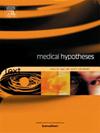我们的呼吸系统输送的是氧气还是电子?
IF 2.1
4区 医学
Q3 MEDICINE, RESEARCH & EXPERIMENTAL
引用次数: 0
摘要
呼吸包括吸入大气中的气体。有观点认为,从肺泡进入毛细血管的不是氧气,而是从氧气中提取的电子。理论上,这些电子与血红蛋白结合。然后,它们通过血液循环直接进入组织,支持组织的新陈代谢。我们指出了标准呼吸范式所面临的问题,同时提出了各种似乎与电子在呼吸过程中的直接作用相一致的观察结果。如果假设得到验证,那么呼吸和新陈代谢之间的直接联系就建立起来了。本文章由计算机程序翻译,如有差异,请以英文原文为准。
Is it oxygen, or electrons, that our respiratory system delivers?
Respiration involves the inspiration of atmospheric gases. Arguments are put forth that it is not oxygen gas that passes from the alveoli to the capillaries, but electrons extracted from the oxygen. Those electrons are theorized to bind to hemoglobin. They are then passed by the circulation directly to the tissues, where they support metabolism. Issues confronting the standard respiratory paradigm are identified, while various observations are put forth that seem consistent with the direct role of electrons in the respiratory process. If the hypothesis is validated, then a direct link will have been established between respiration and metabolism.
求助全文
通过发布文献求助,成功后即可免费获取论文全文。
去求助
来源期刊

Medical hypotheses
医学-医学:研究与实验
CiteScore
10.60
自引率
2.10%
发文量
167
审稿时长
60 days
期刊介绍:
Medical Hypotheses is a forum for ideas in medicine and related biomedical sciences. It will publish interesting and important theoretical papers that foster the diversity and debate upon which the scientific process thrives. The Aims and Scope of Medical Hypotheses are no different now from what was proposed by the founder of the journal, the late Dr David Horrobin. In his introduction to the first issue of the Journal, he asks ''what sorts of papers will be published in Medical Hypotheses? and goes on to answer ''Medical Hypotheses will publish papers which describe theories, ideas which have a great deal of observational support and some hypotheses where experimental support is yet fragmentary''. (Horrobin DF, 1975 Ideas in Biomedical Science: Reasons for the foundation of Medical Hypotheses. Medical Hypotheses Volume 1, Issue 1, January-February 1975, Pages 1-2.). Medical Hypotheses was therefore launched, and still exists today, to give novel, radical new ideas and speculations in medicine open-minded consideration, opening the field to radical hypotheses which would be rejected by most conventional journals. Papers in Medical Hypotheses take a standard scientific form in terms of style, structure and referencing. The journal therefore constitutes a bridge between cutting-edge theory and the mainstream of medical and scientific communication, which ideas must eventually enter if they are to be critiqued and tested against observations.
 求助内容:
求助内容: 应助结果提醒方式:
应助结果提醒方式:


